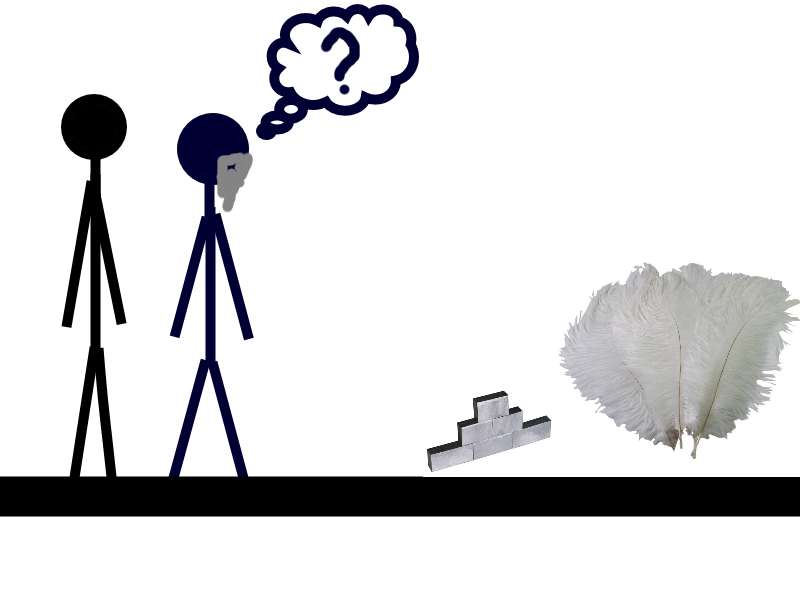A Classic Joke
Albert is walking through his house. He sees his 100 kilograms of lead bricks and his 100 kilograms of feathers lying on his floor. "Silly me," he remarks, "I forgot to put those away!" His friend Ztan is standing next to him. Unfortunately, Ztan only has enough time to make one trip before he must leave to tend to his garden. Therefore, Ztan can only help with one group, and Albert will need to carry the other group alone. Albert will carry the other group above his head such that the center of gravity of the group is in line with his center of gravity.
If Albert wants to diminish the chance of hurting his back from over-lifting, which group of items should he ask Ztan to help him with?
Note: Also, the group of items' constituents are glued together with a magical mass-less glue, such that when picked up, they act as one uniform body and are equally difficult to hold.

This section requires Javascript.
You are seeing this because something didn't load right. We suggest you, (a) try
refreshing the page, (b) enabling javascript if it is disabled on your browser and,
finally, (c)
loading the
non-javascript version of this page
. We're sorry about the hassle.
The lead bricks displace less air, so the buoyant force acting upon them is smaller. Amazingly, the difference is about 480Newtons!
density of lead = 11.34g/cm^3
density of feathers=.0025g/cm^3
density of air = .00125g/cm^3
volume of 100 kg of lead= 100kg*1000(g/kg)/11.34(g/cm^3)=8818cm^3
volume of 100 kg of feathers= 100kg*1000(g/kg)/.0025(g/cm^3)=40,000,000cm^3
buoyant force for lead= 8818cm^3*.00125g/cm^3=11grams=.1078Newtons
buoyant force for feathers= 40,000,000cm^3*.00125g/cm^3=50,000g=490Newtons
Therefore, the 100kg of lead has a measured weight of 979.9Newtons while the feathers have a measured weight of 490Newtons. Now, it is obvious that the lead is much more likely to hurt his back.